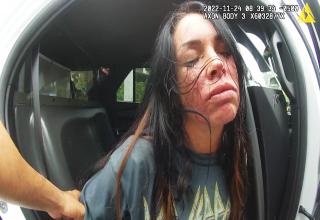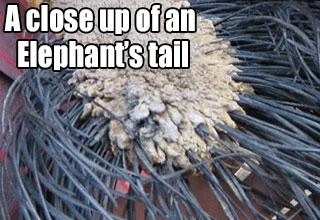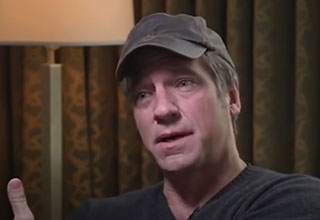
In the 36-odd hours since her release from prison, Gypsy Rose Blanchard has achieved what every wannabe influencer has dreamed of — amassing more than two million new Instagram followers in a little over a day.
Gypsy, who was discharged from the Chillicothe Correctional Center in Missouri on Thursday after serving eight years for the murder of her mother, Clauddine “Dee Dee” Blanchard in 2015, has taken her newfound freedom in stride, doing the rounds on TikTok, Twitter and Instagram, where she’s already confirmed she’s a Lana Del Rey fan and snapped a quick mirror pic to kick off her post-prison grid.
“First selfie of freedom!” Gypsy, now 32, captioned her first IG selfie, one that amassed more than 2.3 million likes and a healthy smattering of “queen”-s,“yass”-es and a very poorly worded “slay mama” within its first hours on the site.
This digital redemption arc was all by design — one that wasn’t necessarily Gypsy’s. In the days, weeks and months before her release, fans, particularly the denizens of Gay Twitter, outlined their ideal vision for Gypsy’s newfound freedom, only half-satirically envisioning a world where she stood among the likes of Azealia Banks, Ariana Grande and Beyoncé.
“I give it 2 weeks after Gypsy Rose Blanchard’s released and she’ll be dating Pete Davidson,” predicted @wumphwumph.
“Gypsy Rose on Hot Ones when?” asked @collinrenfro, while @PeteAscolese began drafting her guest judge introduction for RuPaul’s Drag Race, where she would jokingly refer to RuPaul as “mother.”
Ru: Gypsy Rose Blanchard! Welcome to Drag Race!
— Aule Slag Syne ️ (@PeteAscolese) December 28, 2023
Gypsy Rose: Can I call you mother?
Ru: I insist!
::Judges laugh::
Ru: Now get back in that hospital bed!
:: everyone laughs::
But amid this only somewhat post-ironic interest in Gypsy’s life as a free woman — one cemented with a healthy smattering of fancams set to songs like Beyoncé’s “I’m That Girl” and “WAP” by Cardi B and Megan Thee Stallion — one question remains: Does Gypsy actually want to be a star?
gypsy rose fancam. pic.twitter.com/Hcc7GFGGVp
— JOE. (@outtathisjoe) December 26, 2023
On the surface, it appears the answer is yes. Though the past several days have been defined by press interviews, interactions with paparazzi and getting acquainted with her new horde of followers, Gypsy has long engaged with the public. With help from her husband, Ryan Scott Anderson and her step-sister, Mia Blanchard, she launched Twitter, TikTok and Instagram accounts while serving time. Her activity, though sparse, was consistent, a mixture of inspirational quotes (e.g., “Throw me to the wolves and I’ll come back leading the pack”), promotions for relevant projects (e.g., how to pre-order her new e-book, Released) and even a self-deprecating joke about her status as a true-crime darling.
“Look what my husband found while browsing on Amazon,” Gypsy captioned a snap of Anderson gripping a notebook emblazoned with the slogan “Sorry I wasn’t listening I was thinking about Gypsy Rose Blanchard.”
“Someone actually made and sold this online,” she continued. “But whoever made it never imagined that one day I would see it, let alone my husband buying it… lol.”
But even with her apparent zest for social media — and willingness to wink at the true-crime girlies — Gypsy probably couldn’t leave the public eye even if she wanted to.
On a pragmatic level, embracing internet stardom is probably the path of least resistance for Gypsy. She reportedly earned her GED while behind bars, an impressive feat considering that in 2016, she told a judge she had only received a second-grade-level education, yet her criminal record would make pursuing higher education or finding employment tricky, as more than 60 percent of formerly incarcerated people were still unemployed a year following their release, per the New York Times.
College wouldn’t be much easier. According to the National Conference of State Legislatures, 90 percent of institutions “consider all felonies negatively in the admission process,” making landing a degree rather challenging.
With no background checks, stepping into the role of an influencer is simple, providing Gypsy with several possible avenues for income. But even if money wasn’t an issue, abandoning her notoriety would pose another set of challenges — namely, navigating the true-crime digital ecosystem. In their countless podcasts, documentaries and TikTok series, true-crime creators have been known to sensationalize, spin and ignore relevant parties in recounting grisly cases for clicks, views and revenue — a lesson Gypsy has already learned the hard way.
Case in point: Despite detailing the alleged abuse that led up to her mother’s murder — Dee Dee is thought to have suffered from a psychological condition known as Munchausen syndrome by proxy, which led her to pretend her daughter was terminally ill and forced her to undergo several medically unnecessary procedures — the team behind Hulu’s The Act opted not to consult Gypsy in crafting their miniseries.
Several members of Gypsy’s family were vocal opponents of The Act, her stepmother confirming that the family had contemplated taking legal action against the series creators, while one of her cousins publicly denounced the show as “pretty f—ked up.”
“They hate all of it,” Bobby Pitre told Radar Online at the time. “They don’t know why people keep making stories about it.”
In the years since The Act, Gypsy has largely taken a more active approach in the telling of her story — by choice or by force, we’ll never know. Alongside speaking to publications like TMZ and People on the eve of her release, she’s currently working on a new docuseries for Lifetime entitled The Prison Confessions of Gypsy Rose Blanchard, which is set to hit airwaves on January 5th.
Whether she wants to be or not, Gypsy will always serve at the center of one of America’s most infamous true-crime cases. Movies will be made, articles will be written and podcasts will be recorded with or without her say. As she’s apparently learned, it’s better to play along.
So while Gypsy might finally be free from prison, she’ll always be shackled to life in the public eye.






7 Comments